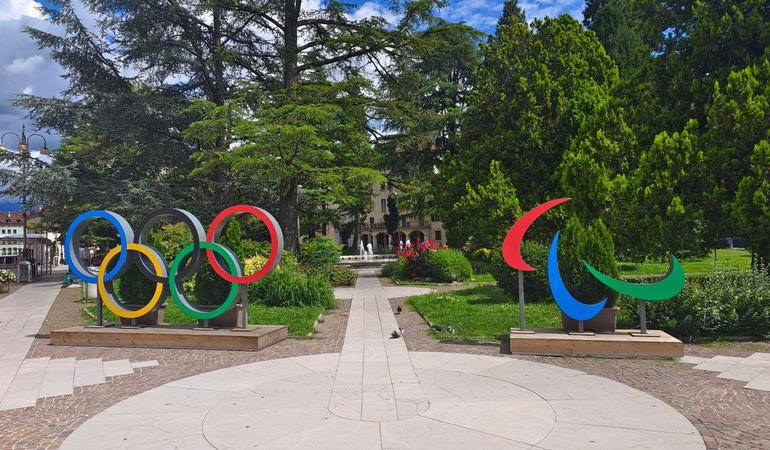
Milano-Cortina. Ecco come verranno spesi i 450 milioni di euro delle paralimpiadi


14 marzo 2023
They have been living in Italy for years, they have a job, a house and children who go to school, but as a result of the new decree by the government of Giorgia Meloni (decree law no. 20 of 10 March) on migrants they may no longer be granted residence permits to remain legally in our country. This is the paradox of a law that, in theory, aims to prevent and fight irregular immigration and provides even harsher punishments for the so-called "scafisti" (boatmen). According to Maria Giulia Fava, legal operator of the Arci Porco Rosso, an association in Palermo, they have "become the scapegoat for the massacres at sea, when the responsibility lies in the political choices that have made these voyages the only possible route of arrival."
In practice, it will create a new army of irregular immigrants by changing the rule on the so-called special protection: a form of protection that in 2022 allowed almost 11,000 people to obtain documents to remain in our country. The new decree aims "to limit it, giving the territorial commissions that assess applications the authorisation to interpret the criteria for granting special protection more restrictively," explains Gianfranco Schiavone, of the Association for Legal Studies on Immigration (Asgi).
The special protection was introduced in 2018 by then-Interior Minister Matteo Salvini. Until then, there were three forms of protection that could be granted to asylum seekers in our country:
This last form of protection, however, was canceled by the first Salvini decree and replaced by special protection which, in its first formulation, had very stringent criteria. In 2020 the succeeding Interior mininster, Luciana Lamorgese, in the second government leaded by Giuseppe Conte, widened the mesh again to protect the "right not to be uprooted." The rule provided for taking into account "the nature and effectiveness of the family ties of the person concerned, his actual social integration in Italy, the duration of his stay in the national territory as well as the existence of family, cultural or social ties with his country." This was until the entry into force of the Meloni decree, which removed the last two paragraphs of paragraph 1.1. of Article 19 of the Consolidated Act on Immigration, in which the requirements for the recognition of special protection for reasons related to the respect of "private and family life" were precisely stated.
Eliminating them, continues Schiavone, is a "clear signal": "The government's aim is to restrict the criteria for recognising special protection as much as possible so as to make it a residual and episodic concession. The immediate result will be to increase legal disputes, that is, the number of people who will appeal against the decisions of the territorial commissions, but not everyone will have the economic resources to do so and will be forced into illegality."
Data from the latest report of the Italian Council for Refugees (CIR) show that in 2022, 52,625 applications for international protection were examined in Italy and refusals accounted for 53 percent (27,385). From the applications accepted, 21 percent of applicants (10,865) received special protection, 12 percent (6,161) received refugee status, and 13 percent (6,770) received subsidiary protection. Applications accepted for special protection rose by 5 percent compared to 2021 — numbers that led Prime Minister Giorgia Meloni to state that this "form of protection has expanded out of all proportion and our goal is to abolish it."
"It cannot be eliminated or restricted to the point where it can only be granted in rare and serious cases," Schiavone retorts, adding that "our constitution considers the right to asylum to be fundamental: it cannot be reduced to just two forms of protection but provides for asylum to be granted in much broader hypotheses, such as what is protected by Article 8 of the European Convention on Human Rights. This article states that every person has the right to respect his or her private and family life. In recent years, special protection has provided stability to people who have long been rooted in Italy and who contribute to the productive life of our country. To limit it is a serious step backward from a cultural point of view, the result of ideological violence."
Thanks to the concerns raised by the President of the Italian Republic, it was at least avoided that migrants awaiting the outcome of their applications could be expelled from one day to the next: those who applied before the decree came into force will be able to benefit from the previous rules, while residence permits issued for special protection can only be renewed once more, for one year.
Read more: The triple injustice against the Global South
"The government wants to convey the message that smugglers are responsible for deaths at sea, but this is not the case"Maria Giulia Fava - Association Arci Porco Rosso
Another critical point of the decree concerns the increase in the already severe penalties for so-called "scapegoats." For anyone who promotes, directs, organizes, finances, or carries out the transport of foreigners into the territory of the State "or carries out other acts aimed at illegally provoking their entry," the new decree establishes that the punishment ranges from two to six years in prison, and no longer from one to five as previously determined. The number of years increases (from 6 to 16) if the aiding and abetting of illegal immigration concerns five or more persons, exposed migrants to life-threatening danger, or subjected them to inhuman and degrading treatment, or if the perpetrators had weapons at their disposal and acted in a group of more than three persons using international transport services or forged documents. When the act results in the death of several persons as an unintended consequence, imprisonment of 20 to 30 years is provided for.
Fava defines these penalties as disproportionate and that, in his opinion, respond to a precise political objective: "The government wants to convey the message that smugglers are responsible for deaths at sea, but this is not the case." Firstly, the motivations that drive people to get behind the wheel of a boat of migrants heading for our shores can be very different: often, they are also migrants who accept this responsibility in order to be able to continue their journey, and they risk death like the others. In January 2023, Arci Porco Rosso and Borderline Europe, another rights organization, published a report in which they claimed that in 2022 there were at least 264 people arrested on charges of being smugglers and "have little or nothing to do with violent organizations and groups that migrants face during their journey."
"They are just the last link in the chain," says Fava. There are many examples where this is the case. One of the alleged smugglers of the boat that sank off Cutro, causing the death of at least 79 people, reportedly died in the shipwreck. Another significant case — reported by Il Manifesto — is that of Ahmad Jawid Mosa Zada, an Afghan prosecutor who fled the Taliban and arrived in Italy in May 2021 on a boat loaded with 230 people. He was accused by three passengers of driving the vehicle and ended up in prison in Catanzaro. He denied the charges but is still awaiting trial.
But even those who agree to act as smugglers for a financial return "cannot be held responsible either for the deaths at sea or for the voyages," adds the legal practitioner. "The point is that this is the only way to enter our country. Political choices should go in the direction of building rescue networks and creating legal entry channels. Everything else is propaganda."
"History and reality have shown that migration flows cannot be stopped until the political and economic reasons that drive people to leave their states of origin to look elsewhere for a place to survive cease to exist"Magistratura democratica - Italian magistrates' association
Nothing changes, instead, on the side of legal entry channels into our country. The Meloni government relies on the so-called flow decrees, which annually establish the maximum quotas of non-EU foreigners to be regularly admitted to Italy. In practice, the workforce that is needed is quantified, as well as the sectors where it is needed; also, the migrants who arrive must have a work contract in their pocket. "They have existed for years," Schiavone points out. "The real innovation would be to allow them to enter our country to look for work."
The magistrates' association Magistratura democratica has also commented on the issue, and writes on its website: "The entry quotas have not worked in recent years, not only because they have been small compared to the real needs and because they have a particularly complex activation procedure (despite the simplifications introduced by Article 2 of Decree-Law no. 20 of 2023), especially for small entrepreneurs or private individuals, but above all because very few are willing to call a person who is unknown to them, who lives abroad and whose work skills they do not have the opportunity to test." "Moreover," the association concludes, "history and reality have shown that migration flows cannot be stopped until the political and economic reasons that drive people to leave their states of origin to look elsewhere for a place to survive cease to exist."
This article was translated by Kompreno with the support of DeepL.
La tua donazione ci servirà a mantenere il sito accessibile a tutti
Riformata. Così il governo vorrebbe la magistratura, ma l'obiettivo è solo limitarne il potere
La tua donazione ci servirà a mantenere il sito accessibile a tutti